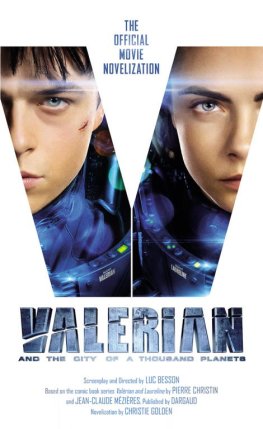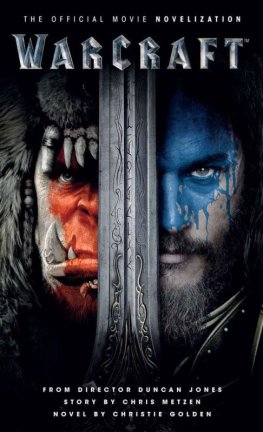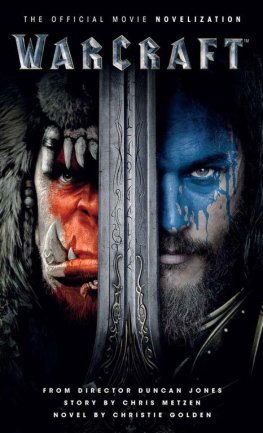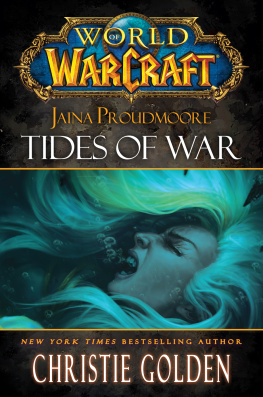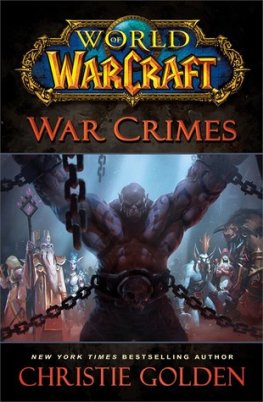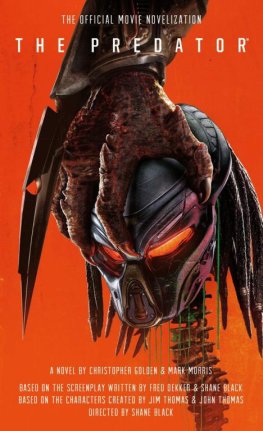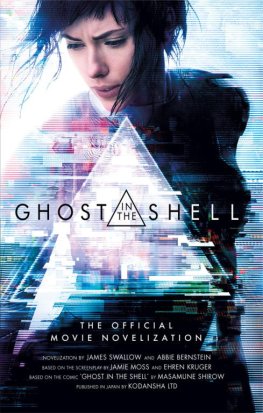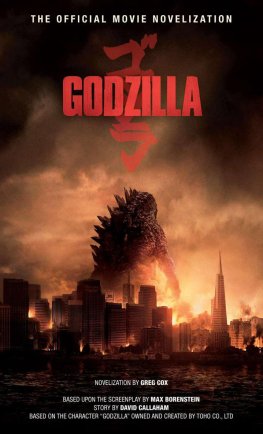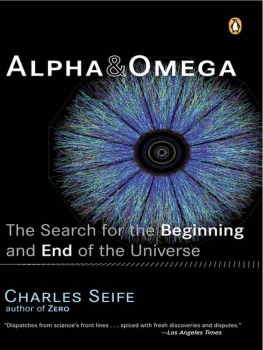Christie Golden

THE OFFICIAL MOVIE NOVELIZATION
THIS BOOK IS DEDICATED TO ALL THOSE WHO SEE WITH FRESH EYES AND MANIFEST AWE AND WONDER; THE MUSIC MAKERS, AND THE DREAMERS OF DREAMS.
The stars were not eternal, but they were ancient nearly beyond reckoning.
Much had their judgeless gazes witnessed in the system ruled by Sol, especially the activity clustered around the third planet from that star.
By that worlds calendar, in the year 1975, something momentous occurred above it.
From separate places on this planet, known to its inhabitants as Earth, a pair of nations had launched what would later be deemed primitive space vessels. For the first time in Earths history, two ships would be joined together, and the inhabitants could move freely between them.
The momentous handshake in space, both a literal one and a figurative one, occurred between astronaut Brigadier General Thomas Stafford of the Apollo, and Alexey Leonov of the Soyuz.
There were smiles and joy and a sense of connection, and the two men became and stayed steadfast friends through the decades that unfurled.
What happened in 1998, at Alpha Space Station in orbit around the blue-green world, was not merely two nations meeting. When the European Hermes spaceplane, proposed in the same year as that first historic handshake, arrived to dock at Alpha, it represented a coalition of nations. Space was no longer the province of a few tiny humans, but was rapidly evolving to belong to humanity.
The space station grew as time went by. In the year 2019, Chinas massive Tiangong-3 spaceship was warmly welcomed when it came to take its place at Alpha. The captain of the Alpha Space Station, one thirty-year-old James Crowford, enthusiastically greeted his Chinese counterpart Wuang Hu, who himself could not seem to stop smiling. Later historians would mark this moment as the end of international tension, and the beginning of what was the first Great Age of human cooperation.
What many on Earth had said could not happen, did happen. Humanity continued to work for peace and cooperation on Earth, while keeping their eyes and hearts attuned to the siren song of space. They continued to shake hands against the vast panoply of the starfield.
The station was fully established, and the distant stars looked on as Earths united glory and passion fueled Alphas boom. Eight short years later, the station had grown enormously. Its population had swelled to eight thousand. More nations had ventured into the stars, and wanted to be part of this symbol of unity. By 2029, every country on this third planet from the sun had at least one scientist on board to represent them.
In 2031, an artificial gravity system was installed. The stations denizens could now walk its corridors as easily as they walked on their home planet. Captain Crowford was now a distinguished man of forty-one years. He had the honor to welcome captains from India, the United Arab Emirates, Korea, Africa, Australia, Brazil, and Japan who, instead of the iconic handshake in space, offered and accepted a traditional bow.
Still the stars, distant and silent, observed. The station expanded, its numbers swelled not just with military or official representatives, but families. And the stars watched as historynot just for humanity, but for the rest of the galaxywas made in the year 2150; the international space station Alpha was now two miles long and home to over a hundred thousand people. But until this moment, all the construction and designs on the station, all the ships that had come to dock with it, and all those aboard them had all had a certain comfortable familiarity.
The vessel that was now approaching did not.
It looked more like a creature of nightmares than a spaceshipblack, chitinous, covered with dozens of sharp, cruel-looking spines. It was lit from withina dull crimson hue visible only from a few windows positioned on the ships sides and two on its bow, if such a strange vessel could be even said to have so pedestrian a thing as a bow.
Captain Joshua Norton, known for his somewhat rakish appearance with a neatly trimmed beard and piercing eyes, would later write in his memoirs:
The ship looked like something out of a Jules Verne novelmore living entity than ship. The portholes positioned on its bow were located toward the top of the sloping vessel. The overall impression was of a huge, dangerous creature bearing down upon the hapless Alpha, its two red eyes glowing in anticipation. At any moment, I expected an enormous mouth to open and swallow us all whole. The English word alien had never felt more apt.
Norton awaited the aliens in the stations ceremonial hall. I tried not to be nervous, he recalled, some six decades later.
Our communications with the Kortn-Dahuks, whose species had originated in the Pleiades star cluster five thousand light years from our neighborhood, the Sol system, had been consistently civil. The shock of that first contact with themour first confirmation that we were not the sole sentient race in the galaxyhas of course been articulated by historians and journalists, and captured by artists and poets. It seems old hat by this time, to be physically interacting with an alien. But you must remember, it was so shockingly, so bravely new to those of us who stood in that hall, sweating and no doubt silently uttering prayers.
As I said, correspondence had been civil. They told us they explored the galaxy not looking for conquest, but in search of art and beauty, which was the heart of their species culture. We hoped for the best. But we didnt know.
The last airlock opened.
Three aliens stepped from their ship onto Alpha station.
They were slightly taller than their human hosts, and were roughly humanoidSuch a telling, Earth-centric word, lamented Norton, and we still dont have anything betterbut there the similarities ended. Norton and his fellow delegates recognized arms and legs, heads with eyes and mouths, but these were appendages affixed to reptilian bodies, and eyes and ears on faces without noses.
Their primary skin color was orange, with blue, yellow, and red blending in those large, noseless faces. Protruding blue-gray lips were set in hard lines. They wore armor on their torsos, lower arms, and legs, and their feet ended in what looked to human eyes like cloven hooves.
We all knew it was a pivotal moment. History in the making. But what kind of history? It seemed as though everything in the worldin ours, at leastwas at stake, in the time it took for our hearts to beat rapidly.
According to accounts, in the pivotal moment, Norton gulped. He offered a smile, and held out a hand that trembled, ever so slightly.
Welcome aboard, he said.
One of the Kortn-Dahuks translated for its leader. There was a pause; the alien features were unreadable to humans, who had never before seen them in the flesh.
The leader stepped forward, taller than Norton. He seized the captains hand
and pumped it up and down, vigorously.
The stationand the whole, watching world breathed a sigh of relief.
Things moved briskly after that first contact. Species that were then unthinkably strange but who would later become old friends, household names, reached out to interact with humans and make their homes on Alpha.
Mercurys, beings that had transformed over time from primarily organic into mineral beings. Analytical, bordering on emotionless, they were almost more alien than the Kortn-Dahuks. Their more accessible ambassadors, the politically astute Doghan Daguis, were invaluable in smoothing out communications between humans and these beings also called the Mirrors.

